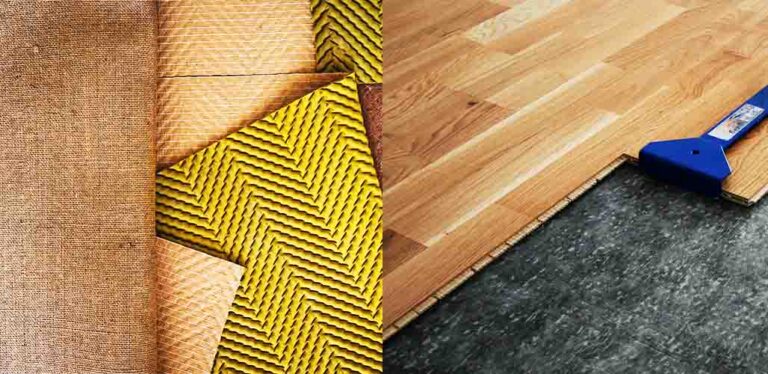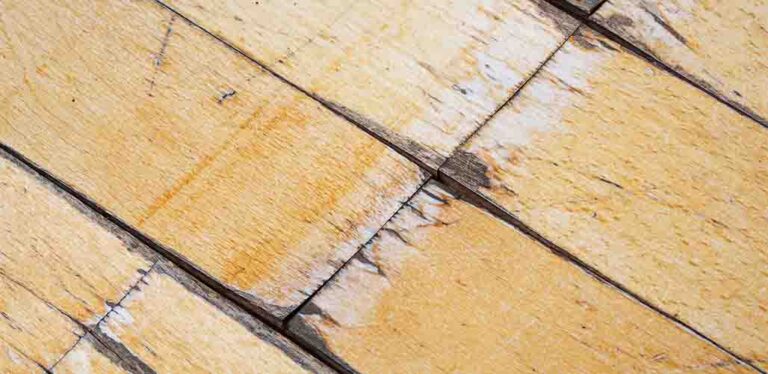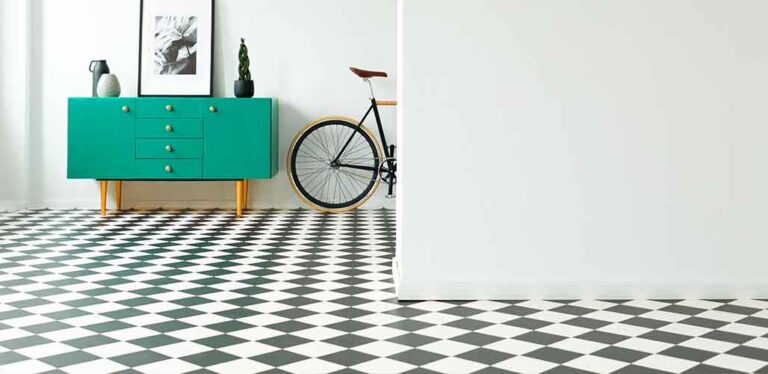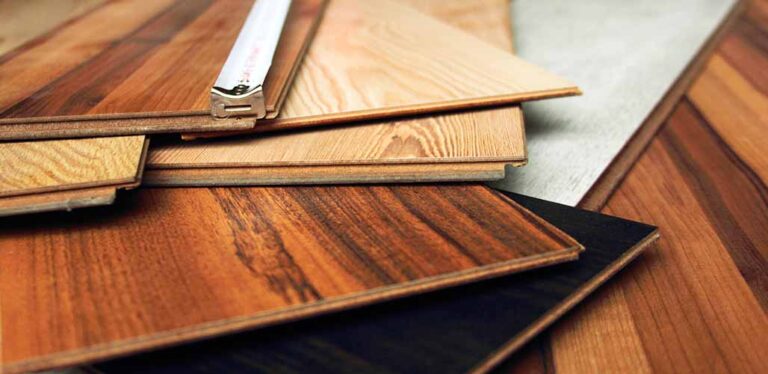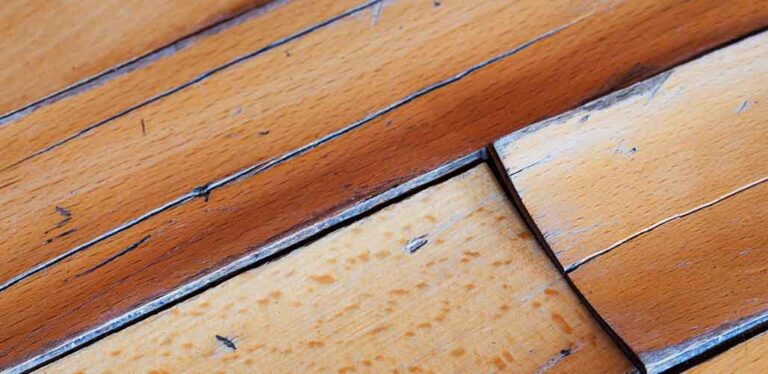Why Does Laminate Flooring Sound Hollow?
Why does laminate flooring sound hollow when you walk on it? Laminate flooring is all the rage these days. I love the way it transforms my living area by brightening the room. When installed properly, laminate flooring can be a great addition to your home. But, if you walk on it and are greeted with a hollow sound, it can make your home feel empty and barren. This is an underlying problem for laminate flooring that has not been installed properly. In this guide, I’ll take a closer look at why laminate floors can sound hollow, other problematic sounds you might experience with this flooring, and how to fix sound issues.
Contents
- Why does laminate flooring sound hollow?
- Other sounds laminate flooring can make
- How to fix the hollow sound of laminate flooring
- Pros and cons of laminate flooring
Why Does Laminate Flooring Sound Hollow?
The amount and type of noise you get out of laminate flooring depends on how big the grooves and tongues on the floor are. Laminate flooring should be laid with underlayment to soften footfall and noise. But, many people will install it without, simple over concrete or old flooring. When you walk over laminate flooring like this, the stress of your weight causes creaking, popping, and squeaking sounds. When you come to a pit or a groove in the floor, you get a hollow sound that echoes across the room or the basement.
Another reason laminate flooring makes such a hollow sound is that it’s not made of real wood. It’s just a sheet of compressed pulp with a plastic veneer on top that mimics the look of natural wood. Not only does laminate flooring trap air pockets under it and emit this reverberating hollow sound, but they also trap moisture which causes mold buildup.
Sounds and Noise Laminate Floorings Make
A hollow sound is not the only noise you get from laminate flooring. The thin sheets of compressed pulp with a plastic veneer on top produce a lot of different noises that can get under your skin after a while. There are three main noises you’ll most often hear from laminate flooring. They are:
1. Popping Sounds
A popping sound is not unusual with laminate flooring although it’s often limited to certain spots on the floor. When the sheet is not installed properly to the floor beneath it or one side comes off, that popping sound occurs when you walk on the loose side of the floor. Sound insulation might help fix this problem.
2. Squeaky Sounds
The squeaky sound you get from the laminate flooring might be because you’re walking in smooth slippers on the floor in which case it’s your footwear that’s making the noise. Or it might be because of the high humidity and moisture in the laminate which causes it to expand and squeak under your weight. Using a dehumidifier and drying liquid spillage quickly can reduce the squeaky noise.
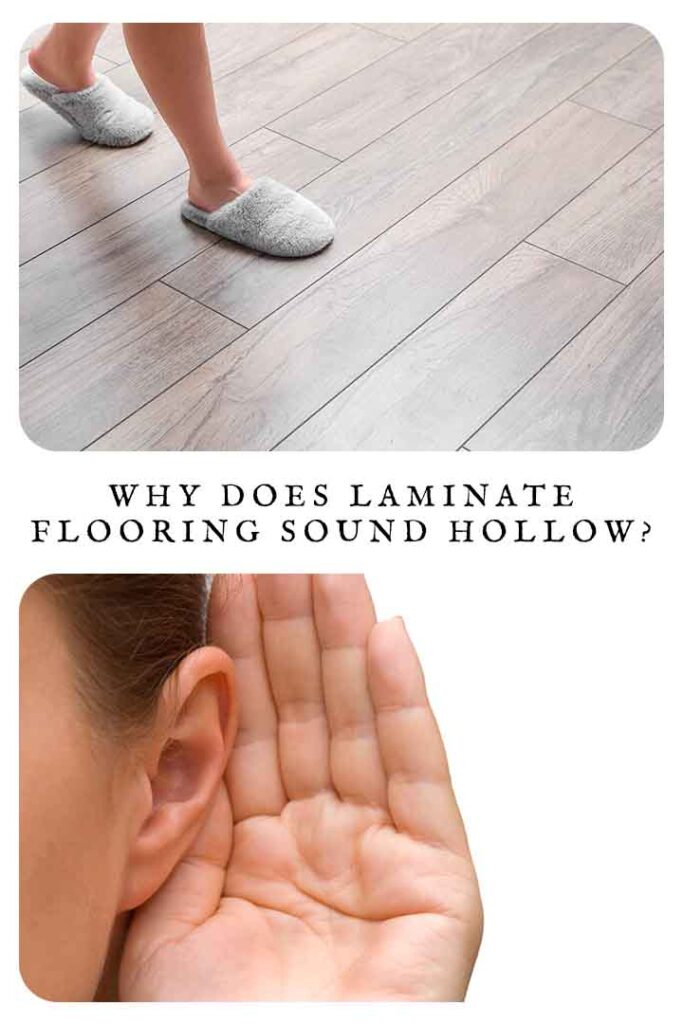
3. A Hollow Sound
Most often laminate flooring installed using the floating method would produce these hollow sounds where pockets of air and gaps exist between the laminate and the floor. An underlayment is crucial to fix this problem and keep the laminate as muted as possible.
How to Fix the Hollow Sound of Laminate Flooring
Contrary to what many people believe, the hollow sound of laminate flooring can be fixed. How you fix it depends on the type of noise you’re dealing with and what causes it. Here’s how to reduce or eliminate the cause of the hollow sound and other noise in laminate flooring.
- Use thick rugs: If the laminate flooring is already installed and is making noise, lay down thick rugs to muffle the sounds and cushion your feet to minimize the stress on the floor.
- Soundproof underlay: For new laminate floorings, make sure to insulate the floor with a soundproof underlay that reduces the noise and prevents any gaps or air pockets between the laminate and the floor. These underlayments are easy to install on any type of flooring that the laminate will go over.
- Green glue: This solution works for both installed laminates and new installations alike. The green glue fills the gaps and cracks in the flooring which acts as a soundproofing solution as well as fixes any defects in the laminate sheets.
- Heavy furniture: When you already have laminate flooring installed, then placing heavy furniture over the areas that make noise or sound hollow will minimize the noise and reverberations of the floor.
- Sealants: Sealants work in the same way as green glue but they’re best applied with new installations. Along with adhesives and primers, you can use them to bond the panels together and make the flooring sturdier and less noisy.
- Soundproof below the floor: The noise that laminate flooring makes travels both ways. To reduce that noise, you can soundproof the ceiling of the room or the basement below the laminate floor.
Pros And Cons of Laminate Flooring
There’s a reason laminate floorings are so popular. They are easy to install, don’t cost much compared to hardwood flooring, and they come in different styles and colors. But that doesn’t mean that laminate floorings don’t have a downside or that the hollow sound they sometimes make is the only problem you might have with them. Here’s a summary of the advantages and disadvantages of laminate flooring.
Advantages
- Attractive design: The print design of the plastic veneer on top of the laminate flooring sheet can reflect any style, color, or pattern you prefer. It can mimic the natural grain of wood, the patterns of marble, or the texture of stone. It’s easy for you to find the right design that matches your carpets or the decor of the house.
- Floating method: You can install laminate flooring using the floating method which allows you to install it over any type of floor from concrete to wood, tiles, or marble.
- Durability: Laminate flooring is known to last longer than other types of wood flooring including hardwood. The plastic top resists wear and tear and doesn’t fade easily either with heavy foot traffic or exposure to the elements.
- Easy installation: If you’re an avid DIYer, you can install laminate without prior experience. The sheets come in interlocking designs that fit together easily even without the need for glue.
Disadvantages
- Scratch easily: Moving a piece of furniture on the laminate or having a proactive pet in the house can cause irreparable damage and scratches to the laminate flooring. It’s easy to fix those scratches.
- Cheap look: No matter how great the laminate looks, some people believe it gives off a cheap vibe even when you cover it with an expensive rug.
- Noise: The thin sheets of laminate make different types of noise in the absence of underlayment.
Why Does Laminate Flooring Sound Hollow? A Summary
Laminate flooring is often installed floating on the floor with little contact. Any hollow areas in the floor will make a squeaky, popping, or hollow sound when you walk over it. Make sure to use an underlayment to fill those gaps in the floor and soundproof the laminate flooring.
More Laminate Flooring Guides
- Does laminate floor need an underlay?
- Can laminate flooring change how big a room looks?
- Is carpet a good laminate underlayment?
- Why is my laminate flooring separating?
- Why do laminate planks buckle?
References
- Jimenez, P. (et al), ‘Wood or Laminate? Psychological Research of Customer Expectations’, Forests (2016)
- Wilson, J. & Cunefare, K. ‘Sound Quality of Laminate Flooring Systems’, The Journal of the Acoustical Society of America (2008)
- Chinga-Carrasco, G. (et al), ‘Side Streams from Flooring Laminate Production – Characterisation and Recycling in Biocomposite Formulations for Injection Moulding’, Composites Part A: Applied Science and Manufacturing (2022)
- Wilson, J. ‘Development and Validation of a Laminate Flooring System Sound Quality Test Method’, Georgia Institute of Technology (2009)


